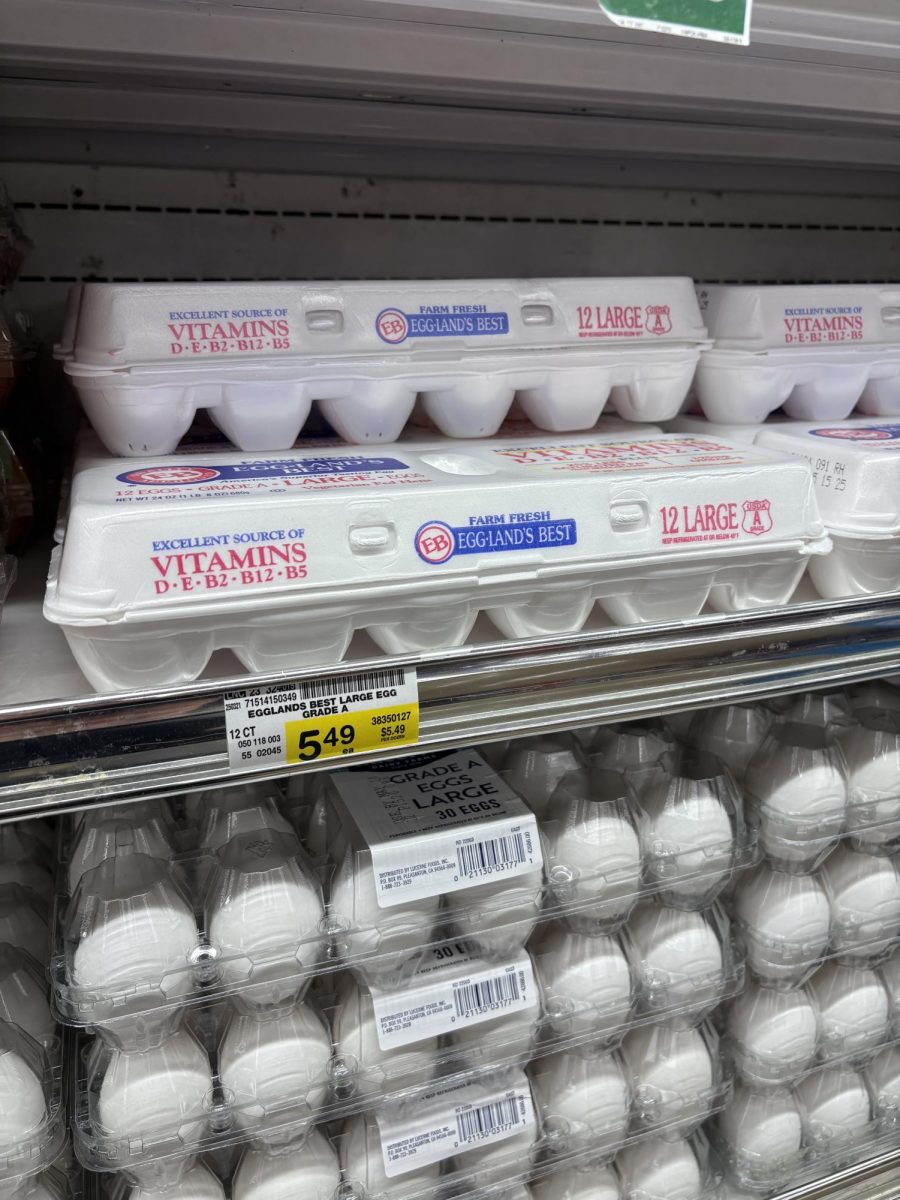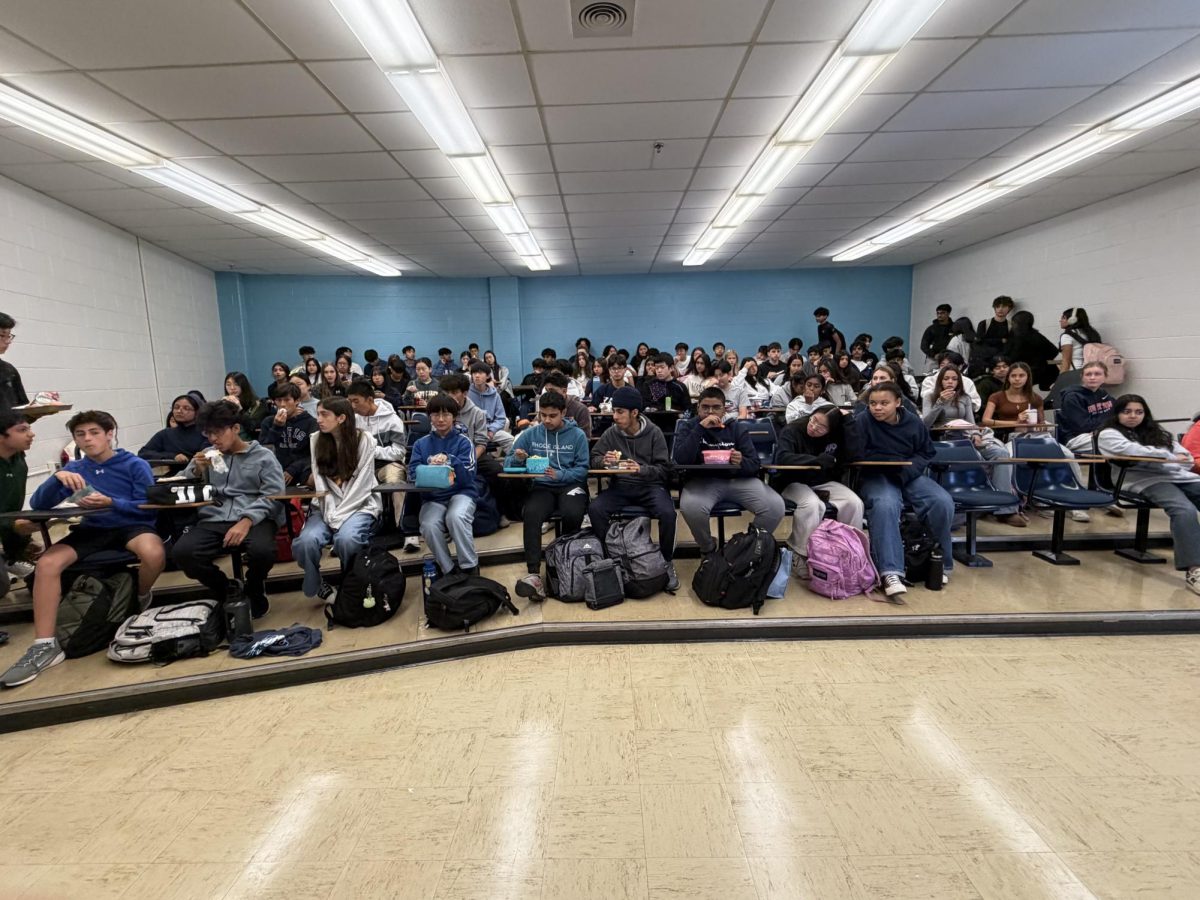Avian Influenza, also known as the Bird Flu, hit the U.S. earlier this year in a major outbreak, causing panic just after the world seems to be recovering from COVID 19 effects.
The bird flu outbreak didn’t affect humans as much, but significantly harmed livestock, which is where egg prices come into play. The outbreak decimated egg supply, and in turn increased demand because of the supply shortage. The outbreak has caused the death of 30.3 million chickens. In order to prevent the disease from further spreading, a large portion of egg production halted, which sparked the major increase in egg prices.
Egg prices reached a record high in February, which can be attributed to the Bird Flu outbreak. Last year, the average cost for a one dozen Grade A eggs was $3.17. In February the average price was $5.90. However, there are other factors for these high prices. Because of the outbreak, the U.S. is now relying on imports to fix the egg crisis. Since his inauguration on Jan. 20, President Donald Trump has administered tariffs on imports from even the United States’ closest trading partners such as Canada. Grocery shoppers have noticed the effects of the tariffs, “I go grocery shopping with my mom and have seen over the months the prices getting higher, especially on eggs,” junior Nigel Gbekie said.
Trump claims that the high egg prices have nothing to do with him and his administration is helping lower prices. “When I took it over, eggs were through the roof, and now eggs are down,” Trump said on Sunday, March 16.
Since January 15, 2025 here has been a decrease in the presence of Avian Influenza in chickens. The wholesale price of eggs have gone down since February, but retail prices have seen little decrease. “I feel like eggs are just getting pricer and pricer at the grocery stores I go to,” junior Danielle Rubin said.
According to the Agricultural Department’s weekly release, average wholesale egg prices have decreased from $6.55 per dozen on Jan. 24 to $3 per dozen on March 28. Retail prices are not the same though, and will likely take longer to see such decreases. “I haven’t seen any significant decrease like that, but hopefully prices get lower in the coming weeks,” Gbekie said.
Even with the recent wholesale egg price decrease, this week the Agricultural Department stated that egg prices could rise by 51.7% by the end of 2025.Trump has since imposed country-specific reciprocal tariffs, which could again raise prices. Ten states have passed laws allowing the sale of only cage free eggs, which further cuts the egg supply in these states. Due to the shortage of egg supply, students say they haven’t been buying as many eggs as they used to. “I find my family opting for different breakfast options rather than the usual scrambled eggs,” sophomore Anna Sofronas said.








